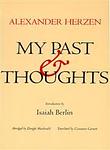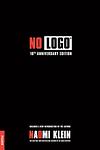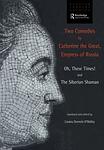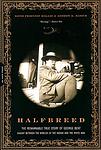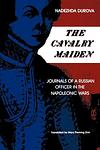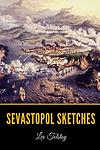The Greatest Russian, Canadian "Nonfiction" Books of All Time
Click to learn how this list is calculated.
This list represents a comprehensive and trusted collection of the greatest books. Developed through a specialized algorithm, it brings together 300 'best of' book lists to form a definitive guide to the world's most acclaimed books. For those interested in how these books are chosen, additional details can be found on the rankings page.
Genres
Countries
Date Range
Reading Statistics
Click the button below to see how many of these books you've read!
Download
If you're interested in downloading this list as a CSV file for use in a spreadsheet application, you can easily do so by clicking the button below. Please note that to ensure a manageable file size and faster download, the CSV will include details for only the first 500 books.
Download-
1. The Gulag Archipelago by Aleksandr Solzhenitsyn
"The Gulag Archipelago" is a comprehensive and stark account of the Soviet Union's forced labor camp system. The narrative, based on the author's own experiences as a prisoner and on extensive research, documents the history, operation, and life inside the Gulag system. It also provides a critical examination of the regime's legal system, police operations, and political leadership. The book is an intense indictment of the Soviet Union's totalitarian regime, revealing its brutality, inhumanity, and vast scale of its prison camp network.
-
2. The Great Transformation by Karl Polanyi
The book in question is a seminal work in economic and social history that examines the development and impact of the modern market economy on global societies. It argues that the rise of market capitalism in the 19th century fundamentally transformed social structures and human relationships, with the commodification of land, labor, and money turning them into tradable goods. This transformation led to social dislocation and crises, prompting a counter-movement for social protection and the rise of the welfare state. The author challenges the idea that the market economy is a natural and inevitable form of social organization, instead presenting it as a constructed system with profound effects on the fabric of society.
-
3. The Life Written By Himself by the Archpriest Avvakum
"The Life Written By Himself" is an autobiographical account by the Archpriest Avvakum, detailing his life as a religious figure in 17th-century Russia. The book chronicles his struggles, including his conflicts with the Russian Orthodox Church, his imprisonment, and his eventual execution. Avvakum's narrative provides a unique perspective on the religious and political climate of the time, showcasing his unwavering devotion to his faith and his unwavering determination to uphold his beliefs, even in the face of persecution.
-
4. My Past And Thoughts by Aleksandr Herzen
The book is a rich and vivid memoir by a prominent Russian intellectual and revolutionary who lived through a period of profound social and political upheaval. It combines personal narrative with philosophical reflections, offering a penetrating look at the author's life experiences, from his aristocratic upbringing to his involvement in radical politics. The work delves into the author's ideological development, his relationships with key figures of his time, and his observations on the social issues and political movements that shaped the 19th century. It is a testament to the author's profound engagement with the ideas of freedom, justice, and human agency in the face of an oppressive regime and a changing world.
-
5. My Childhood by Maxim Gorky
"My Childhood" is a poignant and powerful autobiographical account of a young boy's life in 19th-century Russia. The narrative explores the harsh realities of growing up in a dysfunctional family, with a cruel stepfather and an uncaring mother, against the backdrop of poverty and social unrest. The protagonist's struggles, resilience, and observations provide a vivid portrayal of the societal conditions of the time, while also illuminating the human capacity for hope and perseverance in the face of adversity.
-
6. State And Revolution by Vladimir Il’ich Lenin
This seminal political theory text delves into the role of the state in society and the necessity of proletarian revolution to dismantle the bourgeois state apparatus. It argues that the working class must seize state power, dismantle the existing state machinery, and establish a dictatorship of the proletariat as a transitional phase towards the creation of a classless, stateless society. The work critically analyzes the ideas of Marx and Engels on the state, while also addressing the practical aspects of revolution, including the suppression of the bourgeoisie by the proletariat. It serves as a theoretical foundation for understanding the dynamics of class struggle and the path towards socialism.
-
7. Insight: A Study of Human Understanding by Bernard Lonergan
The book is a comprehensive exploration of human understanding and cognition from a philosophical perspective. It delves into the nature of knowledge, the process of knowing, and the dynamics of inquiry and learning. The author presents a detailed analysis of the human intellect and its operations, investigating the role of insight in decision-making, problem-solving, and discovery. The book also discusses the relationship between understanding and other cognitive faculties such as perception, memory, and imagination, while examining the impact of cultural, social, and historical factors on human understanding.
-
8. Reflections of a Russian Statesman by Konstantin P. Pobedonostsev
"Reflections of a Russian Statesman" is an insightful exploration of the author's conservative and monarchist views on the political and social issues of his time in Russia. As a prominent figure in the Russian government, he provides a candid critique of western democracy, liberalism, and the separation of church and state. He advocates for autocracy, theocracy, and orthodoxy, arguing that these are the pillars of a stable and prosperous society. The book offers a unique perspective on Russian politics and society during the late 19th and early 20th centuries.
-
9. The Way of a Pilgrim by Anonymous
"The Way of a Pilgrim" is a 19th-century Russian Christian text that follows an anonymous protagonist on a spiritual journey across the country. The protagonist is a wanderer who seeks to understand the teachings of the Bible and the nature of ceaseless prayer. Through his travels and encounters with various people, he explores the concept of the Jesus Prayer and the philosophy of the Eastern Orthodox Church. The book is a profound exploration of faith, spirituality, and the quest for divine connection.
-
10. No Logo by Naomi Klein
This book explores the negative effects of corporate branding and globalization. It critiques the marketing strategies of large corporations, arguing that they exploit workers and manipulate consumers. The author also discusses how these corporations have a significant influence on culture and public space. The book suggests that consumer activism and grassroots movements can serve as effective counter-forces to corporate power.
-
11. The Medium Is The Massage by Marshall McLuhan
"The Medium Is The Massage" explores how media, more than the content it carries, influences and shapes human perception and society. The book argues that each medium, independent of content, creates a new environment that alters our sensory balance and social dynamics. It emphasizes that the medium through which we receive information—be it print, television, or radio—plays a crucial role in shaping our experiences and understanding of the world. The work is a seminal exploration of media theory, famously coining the phrase "the medium is the message," to highlight the profound impact of the medium itself over the content delivered through it.
-
12. Notes From The Blockade by Lydia Ginzburg
"Notes From The Blockade" is a poignant memoir that provides a firsthand account of life during the Siege of Leningrad in World War II. The author, Lydia Ginzburg, vividly describes the hardships, hunger, and constant fear experienced by the city's residents, while also exploring the resilience and strength of the human spirit. Through her powerful narrative, Ginzburg offers a deeply personal and moving portrayal of survival amidst unimaginable circumstances.
-
13. The Memoirs Of Princess Dashkova by Ekaterina Romanovna Dashkova
"The Memoirs of Princess Dashkova" is a captivating autobiography that chronicles the remarkable life of a prominent Russian noblewoman. From her privileged upbringing and close relationship with Catherine the Great to her influential role in the Russian Academy of Sciences, Dashkova's memoirs offer a unique perspective on the political and cultural landscape of 18th-century Russia. With wit, intelligence, and a strong sense of self, Dashkova's narrative sheds light on her personal triumphs, challenges, and the turbulent historical events that shaped her life.
-
14. Oh, These Times by Catherine the Great
"Oh, These Times" is a poignant and introspective memoir that delves into the personal experiences and challenges faced by the author, Catherine the Great. Through her candid and insightful narrative, she explores the complexities of ruling a vast empire, navigating political intrigue, and the constant struggle to maintain power and influence. With a blend of wit, wisdom, and vulnerability, Catherine offers a unique perspective on the tumultuous times she lived in, shedding light on the intricacies of leadership and the human condition.
-
15. Memoirs Of A Revolutionist by Vera Figner
"Memoirs of a Revolutionist" is a captivating autobiography that chronicles the life of a remarkable woman, detailing her journey from a privileged upbringing to becoming a prominent figure in the Russian revolutionary movement. Through her personal experiences and reflections, the author provides a vivid account of the political and social upheaval in 19th-century Russia, shedding light on the struggles, sacrifices, and triumphs of those dedicated to the cause of revolution. This thought-provoking memoir offers valuable insights into the complexities of revolution and the indomitable spirit of those who fight for change.
-
16. Outliers by Malcolm Gladwell
The book examines the factors that contribute to high levels of success. Through a compilation of anecdotes and analyses of various cultural phenomena, it argues that success is not simply a result of individual talent or intelligence, but rather the result of a combination of opportunities, hidden advantages, cultural legacies, and the amount of time spent practicing a specific task. The author challenges the traditional notion of the "self-made" individual by emphasizing the importance of external influences and timing, such as being born in a certain era or having access to specific resources, in shaping one's ability to achieve extraordinary accomplishments.
-
17. The Moccasin Maker by E. Pauline Johnson
"The Moccasin Maker" is a collection of short stories and essays that delve into the lives and experiences of Indigenous people at the turn of the 20th century. Through a blend of fiction and autobiographical elements, the work explores themes of identity, cultural conflict, and the impact of colonization on Indigenous communities in Canada. The author, herself of mixed heritage, provides a nuanced portrayal of the struggles and resilience of her characters, often challenging the prevailing stereotypes and offering a unique perspective on the complexities of living between two worlds. The stories are notable for their rich characterizations and the author's lyrical prose, which captures the beauty and sorrow of the cultural landscape she describes.
-
18. Halfbreed by Maria Campbell
This autobiographical book is a powerful and candid account of a Métis woman's struggles with identity, poverty, and racism in Canada. It chronicles her journey from a difficult childhood in a small Saskatchewan community, where she faced discrimination and personal tragedies, to her efforts as an adult to find her place in a society that often marginalized Indigenous people. The narrative is a poignant exploration of the author's search for self-acceptance, cultural pride, and her fight against the systemic injustices that Indigenous communities have endured. Her story is a testament to resilience and the strength found in embracing one's heritage.
-
19. The Curve Of Time by M. Wylie Blanchet
"The Curve of Time" is a captivating memoir that chronicles the summer voyages of a widowed mother and her five children as they explore the rugged coastline of British Columbia in the 1920s and 30s aboard their 25-foot boat. With lyrical prose and a pioneering spirit, the narrative weaves together the family's adventures and encounters with the natural world, indigenous communities, and isolated settlers. The book is a reflection on time, nature, and the enduring bonds of family, offering a timeless meditation on grief, resilience, and the enchanting mystery of the sea.
-
20. The Cavalry Maiden by Nadezhda Durova
"The Cavalry Maiden" is a vivid memoir of a young Russian woman who defies the conventions of her time by disguising herself as a man to join the Russian cavalry during the Napoleonic Wars. The narrative recounts her extraordinary experiences on the battlefield, her struggles with her secret identity, and her observations of military life during a tumultuous period in history. The author's passion for military service and her quest for personal freedom and adventure shine through as she provides a unique perspective on the roles of gender and social expectations in the early 19th century.
-
21. Sevastopol Sketches by Leo Tolstoy
The book is a collection of three short stories, each offering a vivid and gritty portrayal of the Siege of Sevastopol during the Crimean War. Through the eyes of various characters, ranging from a young and naive officer to seasoned and weary soldiers, the narrative delves into the brutal realities of warfare, the camaraderie among the troops, and the heroism and sacrifice on the front lines. The author's own experiences as a participant in the siege lend authenticity to the detailed descriptions of the battles, the strategies employed by both sides, and the daily struggles of life in the besieged city, ultimately presenting a poignant meditation on the nature of war and the human condition.
-
22. Journey From St. Petersburg To Moscow by Alexander Radishchev
This book is a seminal Russian work that takes the form of a travelogue, documenting the narrator's observations and reflections as he journeys between two major cities. Along the way, the narrator engages with various individuals from different social classes and discusses the social and political issues of the time, including serfdom, the justice system, and the condition of the peasantry. The work is notable for its critical perspective on the social injustices of 18th-century Russian society and is often regarded as a call for reform and enlightenment, which ultimately led to it being perceived as a threat by the authorities, resulting in the author's exile.
-
23. Fallen Leaves by Vasily Rozanov
"Fallen Leaves" is a collection of philosophical and autobiographical essays that delve into the author's musings on a wide range of topics, including religion, sexuality, and society. The work reflects the author's critical examination of modernity and the decline of traditional values, as well as his personal sense of isolation and disillusionment with the contemporary world. Through a series of fragmented and often controversial reflections, the author grapples with the existential challenges of his time, presenting a candid and introspective exploration of the human condition at the turn of the 20th century.
-
24. My Life by Leon Trotsky
This autobiography provides a detailed account of the life of a prominent Russian revolutionary and Marxist theorist. The book traces his early life, education, and political development, his role in the Russian Revolution and Civil War, his leadership of the Red Army, and his expulsion from the Communist Party and subsequent exile. It offers a unique perspective on key events in 20th-century history and an insight into the author's complex personality and intellectual development.
-
25. The Glenn Gould Reader by Glenn Gould
"The Glenn Gould Reader" is a compilation of writings by a renowned Canadian pianist, known for his unique and insightful perspectives on music and culture. This collection offers a window into the artist's mind, featuring a diverse range of essays, articles, reviews, and interviews that explore his philosophies on performance, the intricacies of musical interpretation, and the role of technology in the arts. His articulate and often provocative commentary extends beyond classical music to touch upon a variety of subjects, reflecting his broad intellectual interests and distinctive voice in the world of music and beyond.
Reading Statistics
Click the button below to see how many of these books you've read!
Download
If you're interested in downloading this list as a CSV file for use in a spreadsheet application, you can easily do so by clicking the button below. Please note that to ensure a manageable file size and faster download, the CSV will include details for only the first 500 books.
Download


